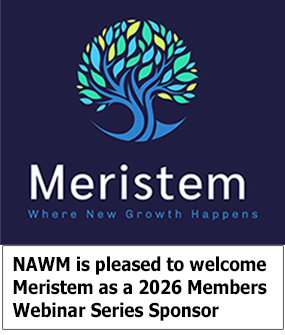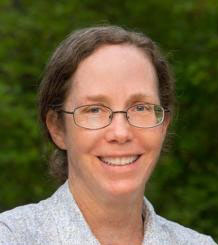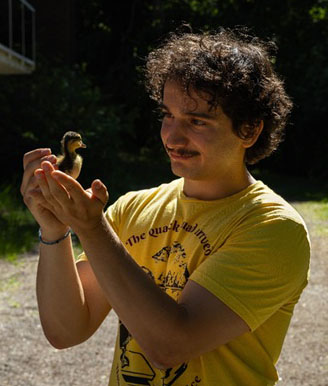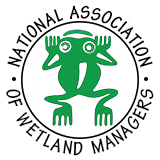 The National Association of Wetland Managers (NAWM) holds eight webinars per year for members. NAWM Member webinars cover a variety of topics encompassing wetland science, policy, program implementation, and legal issues. These webinars, including recordings for past webinars are available to NAWM members.
The National Association of Wetland Managers (NAWM) holds eight webinars per year for members. NAWM Member webinars cover a variety of topics encompassing wetland science, policy, program implementation, and legal issues. These webinars, including recordings for past webinars are available to NAWM members.
Not a NAWM Member? Join or Renew
For more information about this webinar series, please contact Laura Burchill at laura@nawm.org or
(207) 892-3399. Learn more about sponsorship opportunities.
If you haven’t used Teams before or you just need a refresher, please view our guide prior to the webinar.
View Past NAWM Members Webinar Series Here
View a List of Past NAWM Members Webinar Series Recordings Here
![]()
Habitat Benefits of Geographically Isolated Wetlands
Wednesday, March 18, 2026 - 3:00-4:30 p.m. EDT
PRESENTERS
- Lora Smith, Jones Center at Ichauway
- Basile Marteau, University of Helsinki
ABSTRACTS
Lora Smith
Ecosystem services of isolated wetlands in longleaf pine forests: amphibian diversity
Geographically Isolated Wetlands, or GIWs, are often defined as wetlands that lack a consistent surface water connection to other water bodies. Despite the apparent lack of connectivity, GIWs provide ecosystem services that greatly exceed their spatial extent, and are important functional components of the broader landscape. At local scales, GIWs provide critical habitat for wildlife, including threatened and endangered species. At regional scales, GIWs improve water quality by removing sediments and nutrients. GIWs also store large amounts of water, helping buffer watersheds from both floods and droughts. This is particularly important for amphibians in wetlands embedded within native terrestrial systems such as longleaf pine (Pinus palustris) forests, where >30 species of amphibians can occur. More than a third of these species breed exclusively in GIWs including two federally-listed species (reticulated flatwoods salamander, Ambystoma bishopi; frosted flatwoods salamander, A. cingulatum), one species under review for federal listing (gopher frog, Rana capito), and a state-listed threatened species (striped newt, Notophthalmus perstriatus). Their larvae rely on aquatic systems, whereas juveniles and adults spend the non-breeding season in adjacent upland habitats. These species, like other amphibians that breed in GIWs, generally have a long life span, high reproductive potential, and some degree of plasticity in larval development as adaptations for cycles of wetland filling and drying. However, reproductive success is dependent on minimum thresholds of hydroperiod length. Additionally, extended hydroperiods may increase annual reproductive output of species. Therefore, management of wetlands and the surrounding forests to increase wetland hydroperiod is critical to support amphibian diversity.
Basile Marteau
The role of vernal pools and aquatic invertebrates in supporting waterfowl breeding success
The decline of invertivorous waterbirds in Fennoscandia over the recent decades has raised concerns. Decrease in food resource availability and quality has been suggested as one of the potential drivers behind this decline. Fewer wetlands are suitable for dabbling ducks as many shallow lakes and wetlands have been drained for agriculture or forestry, and existing ones are overgrown. In this context, temporary wetlands may be particularly important for rearing ducklings as they might host a high abundance of aquatic invertebrates due to the absence of fish predators. Hence, Vernal pools are small temporary wetlands, usually filled with precipitation in autumn and winter. However, the impact of wetland productivity (in terms of available aquatic invertebrates) and ducklings body condition and survival is still poorly understood, especially in temporary wetlands
In this research, we used imprinted mallard ducklings (Anas platyrhynchos) to study the effects of habitat type (lake, and vernal pools) and their relative aquatic invertebrate availability on duckling growth in 2023 and 2024. Ducklings were divided into two groups and assigned to forage in either lakes or vernal pools. Ducklings foraged at the study sites for four hours daily and were weighed before and after. Aquatic invertebrates were sampled with emergence and activity traps. Ducklings gained as much or more weight when feeding in vernal pools compared to lakes in 2023 and 2024 respectively. Results showed ducklings’ daily weight gain was linked to macroinvertebrate availability. Temporary ponds were richer in aquatic macroinvertebrates than lakes, and more ducklings survived in temporary ponds due to the absence of fish predation. We highlight the crucial role of aquatic invertebrates in ducklings’ mass gain and the under investigated potential importance of temporary wetlands for duckling survival and overall waterbird breeding success.
BIO
 Lora Smith has been a Research Scientist in herpetology at the Jones Center at Ichauway in southwestern Georgia since 2001. Broadly, her research program at the Center has focused on the effects of habitat restoration and management on amphibian and reptiles in longleaf pine forests. Her work includes studies on habitat predictors of amphibians and reptiles in seasonal wetlands, long-term studies of the effects of predators on gopher tortoise populations, and the ecology of upland snakes. She has adjunct faculty status at the University of Georgia and has served on the advisory committees of more than 18 UGA graduate students. Most recently, she was lead author on a book chapter on Conservation of southeastern amphibians for the Amphibian Biology series published by Edition Chimaira Publishers.
Lora Smith has been a Research Scientist in herpetology at the Jones Center at Ichauway in southwestern Georgia since 2001. Broadly, her research program at the Center has focused on the effects of habitat restoration and management on amphibian and reptiles in longleaf pine forests. Her work includes studies on habitat predictors of amphibians and reptiles in seasonal wetlands, long-term studies of the effects of predators on gopher tortoise populations, and the ecology of upland snakes. She has adjunct faculty status at the University of Georgia and has served on the advisory committees of more than 18 UGA graduate students. Most recently, she was lead author on a book chapter on Conservation of southeastern amphibians for the Amphibian Biology series published by Edition Chimaira Publishers.
 Basile Marteau is a Wetland Ecologist working at the University of Helsinki and the Lammi Biological Station. In his doctoral journey, he is trying to understand how wildlife, waterfowl, bats, and insects can benefit from temporary ponds. He is specifically studying waterfowl breeding success and duckling survival.
Basile Marteau is a Wetland Ecologist working at the University of Helsinki and the Lammi Biological Station. In his doctoral journey, he is trying to understand how wildlife, waterfowl, bats, and insects can benefit from temporary ponds. He is specifically studying waterfowl breeding success and duckling survival.
A Certificate of Attendance to be used toward Continuing Education Credits is available when participating in NAWM's live webinars. All Certificates must be claimed no later than 60 days from the live presentation. Certificates are not available for viewing recorded webinars. More Information.
![]()
To view Past Members Wetland Webinars:
Members You must be logged in.
Nonmembers To view recent Members Webinars, please join NAWM.
View Past Members Webinar Series Here
View a List of Past Members Webinar Series Recordings Here
